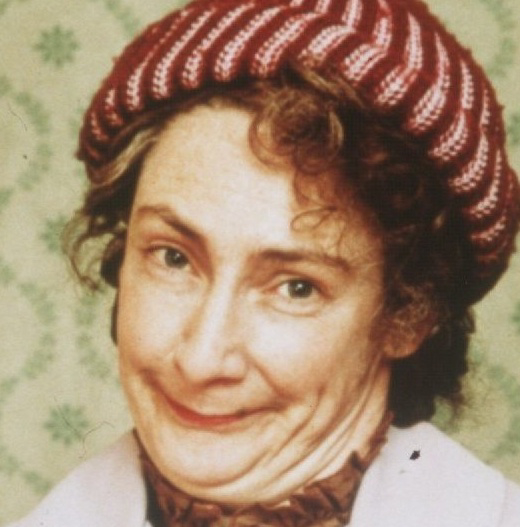My family and I were going through my grandmother’s apartment after her passing to get her estate in order. After all was said and done, I got a bunch of alcohol she had for guests mostly, including two types of whiskey (scotch and regular), some gin, and three flavors of vodka. I tried some of the Crown Royal and it didn’t taste too good. Also didn’t taste like the last glass of whiskey I had before. Of course I always hear about stuff aged 4 years or 12 years etc. so I wonder if it’s a “gone bad” thing or a me thing.
It may change taste profile depending on heat and sun/light exposure but it’s still alcohol unless the bottle is compromised and it evaporated.
Aging refers strictly to how long the alcohol was left in a barrel before being put into a glass bottle. A 10 year old bottle of scotch is still only a 10 year old even if it was bought in 1970.
This is also why a lot of beer and other alcohol is bottled in brown bottles. The brown glass blocks some amount of UV exposure which can affect the final product over time.
Green glass has no such benefit though. Just looks nice.
I’ll add in her something I learned recently - whisky can become “corked”, ie if the stopper is made of cork, it can go bad and ruin the drink’s flavour. I thought this was just a wine thing, but apparently it can happen with whisky too.
I’d have to wonder if storing a corked bottle of whiskey at an angle to keep the cork wet like with wine keeps it intact.
That alcohol percentage in whiskey is high enough that the alcohol would slowly eat away at the cork. To make sure the cork doesn’t dry out it is best to keep the bottle upside down for a few seconds once every ~6 months.
What we know as whisky maturation is a dance between 4 interrelated processes - infusion, evaporation, oxidation, and other chemical reactions. These all happen together, and very nicely, when whisky sits in oak barrels for an extended period of time.
Colour, and oak flavour are infused into the whisky simply by sitting in the barrel. The whisky will slowly evaporate while inside the barrel as well. Volatile compounds evaporate, making the whisky smoother, deeper, and more complex with age. Fascinating chemical reactions happen between compounds in the wood, and in the whisky. As ethanol degrades lignin, for example, it creates new compounds, which themselves interact with other molecules and compounds in solution.
The age statement on a bottle of whisky refers to the time it spent in a barrel, doing those lovely things.
Common wisdom is that the whisky is done changing when it goes into glass. Certainly, infusion and evaporation are finished. But! Oxidation, and reactions between compounds in the whisky itself will continue, even in a sealed glass bottle. Usually this happens too slowly to notice, or the bottle gets drank before a change can be observed, but change certainly happens.
Long story short - whisky won’t go bad. In fact, sometimes it even goes ‘good’! I had the chance to try a young single malt, that was bottled in the 1970s. It was wonderful, and had signature aroma and flavour characteristics of a very old whisky. This is due to slow oxidation, and the glacial interaction between esters and congeners over time, which will happen no matter what vessel the whisky is in.
Whisky that has been exposed to too much oxygen, like if the bottle sits nearly empty for a long time, or has a bad seal, will often end up tasting flat and bland. But ‘good’ or ‘bad’ at this point, is a subjective matter. Only one way to find out!
Explains that one time I had a bottle of disgusting flavoured whiskey, let it sit half-empty for a few weeks or even months, and then it was actually pretty good
Could be! From my experience, high strength Bourbon is better a couple weeks after being opened. From a flavour standpoint, gin also benefits greatly from resting for a few weeks after distillation.
In fact, one of my favourite Scotch Whisky distilleries will blend a production batch, and then re-barrel the blended volume in casks and let it rest for 6 months to allow the flavours to harmonize.
There is definitely some magic that happens after spirits are blended/bottled, and it’s not very well understood, but the changes are detectable, and in general, they’re positive.
Which distillery?
I know Bruichladdich has said they do this for the Laddie Classic (a bottling I really love). Source: just trust me bro. I don’t recall when or where I heard that. Possibly they do it with other bottlings, and surely other distilleries are doing the same thing. Bruichladdich didn’t invent the process. But it’s not a well studied, documented, or promoted element of whisky ageing, because, I think, it’s not as sexy as infusion and evaporation. Among other reasons. If you’re curious, I could spin a yarn.
Any distillery that chooses to do this, certainly does it for a reason. Disgorging and re-casking a batch is a massive pain in the ass, and holds up warehouse space & production timelines - two things a bean counter with no sensitivities to flavour would be happy to cut out.
Or you already drank what you like and were finally drunk enough that you didn’t taste how bad it was. 🤣
Alcohol can’t expire, expiration is a part of how it’s made. In most of these cases the expiration date is actually for the container.
If the container looks fine and nothing has gotten into it, it’s no more dangerous to you than alcohol normally is. Same goes for vinegar and many other similar things. For example honey can’t go bad in a sealed bottle, but the bottle can degrade and let things in.
This is not exactly true, alcohol can become vinegar if exposed to oxygen, and I doubt those bottles are properly hermetically sealed.
I was more referring to food safety, as neither vinegar nor acetobacter will make you sick. Unpleasant, sure, but safe to drink.
You’ve obviously gotten the base level answer, but to add some color here - certain types of food, such as dried pasta, rice, beans, grains, high proof alcohol, vinegars, and basically anything frozen to name a few, never spoil in the sense that they’re unsafe to eat.
Flavor, however, is an entirely different matter. Just ask anyone who has eaten freezer burnt food.
Pretty much any high proof alcohol will fall into this category. And, if it’s unopened, it should retain most of its flavor for a very long time. Once opened, however, it can deteriorate relatively quickly, depending on how it was stored.
With the caveat that many food borne illnesses are not killed when frozen. If something was contaminated when frozen it can remain contaminated when thawed (to your point though I don’t think many things that are fine when frozen can become unsafe while frozen)
Your list of semi non-perishable foods does need some caveats about storage, because most of those things can go bad, depending on how they were stored.
Frozen meat can spoil, as not all bacterial growth stops, some just slows down a whole lot. So if Grandma threw in a store plastic wrapped tray of chicken quarters, after being in the fridge for 3 days, and now it’s 8 years later, those might not be safe for human consumption.
Stuff that was vacuum sealed, much more likely to last the long haul in the freezer, if done properly.
Long-term stored grain, when not in vacuum sealed or other airtight containers, can develop molds or other bacterial contaminations.
Improperly stored vinegar, if you try to use it…it will ruin your salad dressing, and taste like shit. But it’s pretty easy to see if vinegar has gone ick.
Can’t say I’ve ever seen moldy or spoiled vinegar, but I’ve seen the type of kitchens that would be capable of making it happen in a long enough time frame.
I’ve also never seen bad dry storage pasta or beans, but I imagine they carry the same long-term storage concerns as grains, even if they’re probably a bit more durable.
Sorry about your grandmother! Sending heartfelt condolences ❤️
As others have said, beverages such as whiskey are generally considered to be non-perishable due to their high alcohol content. They won’t “go bad” in the sense that they’ll be harmful to you if you drink them, but the flavor may change after a long time. If you have pleasant memories of your grandmother, I’d keep them in a sturdy box that’s for sentimental items!
Aging for whiskey and scotch is done in specialized wood barrels with specific environmental conditions, not in the bottle.
If the hard booze bottles been opened for a long time, it’s always possible some evaporation, or other slight changes have occurred that may impact taste, but still perfectly safe. Assuming it’s 80 proof and up.
Throw out open wines if you’re not comfortable determining if they’re still consumable and not spoiled.
TLDR: Toss opened bottles of wine, but any hard liquor should be safe, even if it taste is degraded.
Whisky no, doesnt expire but its cork might have dried, fall apart, alcohol escaped, etc.
I’m sorry about your grandmother. Given she had a stocked liquor cabinet for guests shows she was a thoughtful person. I hope you found some great memories in her belongings.
Or maybe gram gram liked to get turnt.
The bedside table was a real eye opener.
I mean…. Crown Royal never tastes too good so you’re probably fine.
Crown Royal Black is very good. The Salted Caramel is nice too.
I love crown black. It’s definitely the cheapest I can buy without feeling gross the next day after a couple drinks.
Exactly. It’s a nice smoky whiskey. I also like the Johnny Walker Double Black. For the more expensive,
ArdbergArdbeg 10 and Lagavulin 16.- Ardbeg
It would be quite funny if they released a set of iceberg-shaped whisky stones called the ardbergs though
They did say it was an old bottle, possibly before capitalism ruined the brand.
Safe to drink, but if that drink is a pleasant memory or Grandma’s shot challenge from hell depends on how well it was kept if opened.
Grandma’s shot challenge from hell
This is so funny I laugh every time I reread it. It implies so many things.
“Gramma wasn’t no pussy sonny!”
Depends on your definition of expiring. The taste can change but the high percentage of alcohol should make it still safe to consume.
The flavor can eventually turn bad but it would usually take an extremely long time. Like decades.
Sometimes when I’m clearing out properties I’ll find a mystery bottle of booze.
If it tastes like vinegar or not anything like you’ve had before it’s no good.
You’re braver than I am. I used to be a bartender who had several landlords in a college town that would come in at happy hour. The horror stories I’ve heard…
I’d like to hear those horror stories too
“I spent the afternoon cleaning cum off the ceiling of a room. If this happens again I’m just gonna spackle over it.”
no
If there’s enough alcohol in it, that will keep bacteria etc out, so it’s probably safe to drink. But ageing happens inside a wooden barrel or something like that. Inside of a opened bottle, it can lose or change flavor over time. But I’m not sure if that’s the case here. It’ll take some years. And there is a wide variety of tastes in whiskey, so maybe you tasted a different sort of whiskey? Or it really went bad… I’ve never had “Crown Royal”. Maybe let someone taste who knows how it’s supposed to taste.









